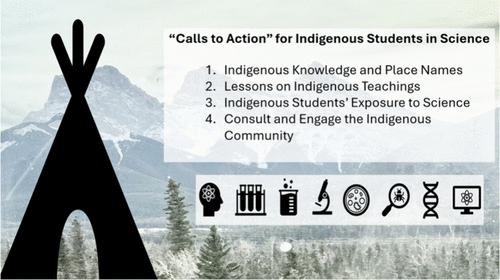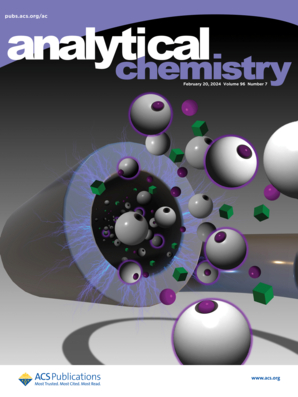Advancing Equity and Empowering Science Students from Indigenous Communities
IF 6.7
1区 化学
Q1 CHEMISTRY, ANALYTICAL
引用次数: 0
Abstract
Implementation of Diversity, Equity, Inclusion, and Respect (DEIR) is crucial for supporting students in a culturally safe environment, reducing bias, fostering respect, broadening perspectives, enhancing collaboration, and improving education in science. DEIR with Indigenous reconciliation incorporates Indigenous-based DEIR initiatives as a response to the Truth and Reconciliation Commission (TRC) in Canada to acknowledge the intergenerational trauma and mistrust toward colonial institutions such as universities. Universities can advance reconciliation by incorporating DEIR with Indigenous reconciliation into everyday practices. Indigenous students are significantly less likely to attain degrees in science, technology, engineering, and mathematics (STEM). The lack of Indigenous representation in STEM significantly hinders the inclusion of Indigenous perspectives in scientific processes and decision-making. A collaborative effort is essential to improve Indigenous student recruitment in science programs. Scientists need to educate themselves on the colonial legacies of Indian Residential Schools (IRSs) and Indian Hospitals (IHs), as well as on the biases and barriers that Indigenous students face. While this paper focuses on several Canadian examples, it highlights challenges and traumas that are similarly faced by Indigenous students worldwide. Therefore, supervisors and research groups should actively participate in training sessions and develop strategies aimed at preventing discrimination and fostering inclusivity. This paper highlights the importance of DEIR with Indigenous reconciliation in university science programs and addresses issues of recruiting Indigenous students. The “Calls to Action” outlined in this paper will help scientists and educators understand barriers faced by Indigenous students, advocate for lifelong learning and social stewardship, and foster a more inclusive scientific environment.

促进公平和赋予土著社区理科学生权力
实施多样性、公平、包容和尊重(DEIR)对于在文化安全的环境中为学生提供支持、减少偏见、培养尊重、拓宽视野、加强合作和改善科学教育至关重要。DEIR与土著和解结合了基于土著的DEIR倡议,作为对加拿大真相与和解委员会(TRC)的回应,以承认代际创伤和对大学等殖民机构的不信任。大学可以通过将DEIR与土著和解结合到日常实践中来促进和解。土著学生获得科学、技术、工程和数学(STEM)学位的可能性明显较低。STEM中缺乏土著代表严重阻碍了在科学过程和决策中纳入土著观点。协作努力对于改善科学项目中土著学生的招募至关重要。科学家需要让自己了解印第安寄宿学校(IRSs)和印第安医院(IHs)的殖民遗产,以及土著学生面临的偏见和障碍。虽然本文关注的是几个加拿大的例子,但它强调了世界各地土著学生同样面临的挑战和创伤。因此,主管和研究小组应积极参与培训课程,并制定旨在防止歧视和促进包容性的战略。本文强调了DEIR与原住民和解在大学科学计划中的重要性,并讨论了招募原住民学生的问题。本文概述的“行动呼吁”将帮助科学家和教育工作者了解土著学生面临的障碍,倡导终身学习和社会管理,并促进更具包容性的科学环境。
本文章由计算机程序翻译,如有差异,请以英文原文为准。
求助全文
约1分钟内获得全文
求助全文
来源期刊

Analytical Chemistry
化学-分析化学
CiteScore
12.10
自引率
12.20%
发文量
1949
审稿时长
1.4 months
期刊介绍:
Analytical Chemistry, a peer-reviewed research journal, focuses on disseminating new and original knowledge across all branches of analytical chemistry. Fundamental articles may explore general principles of chemical measurement science and need not directly address existing or potential analytical methodology. They can be entirely theoretical or report experimental results. Contributions may cover various phases of analytical operations, including sampling, bioanalysis, electrochemistry, mass spectrometry, microscale and nanoscale systems, environmental analysis, separations, spectroscopy, chemical reactions and selectivity, instrumentation, imaging, surface analysis, and data processing. Papers discussing known analytical methods should present a significant, original application of the method, a notable improvement, or results on an important analyte.
 求助内容:
求助内容: 应助结果提醒方式:
应助结果提醒方式:


